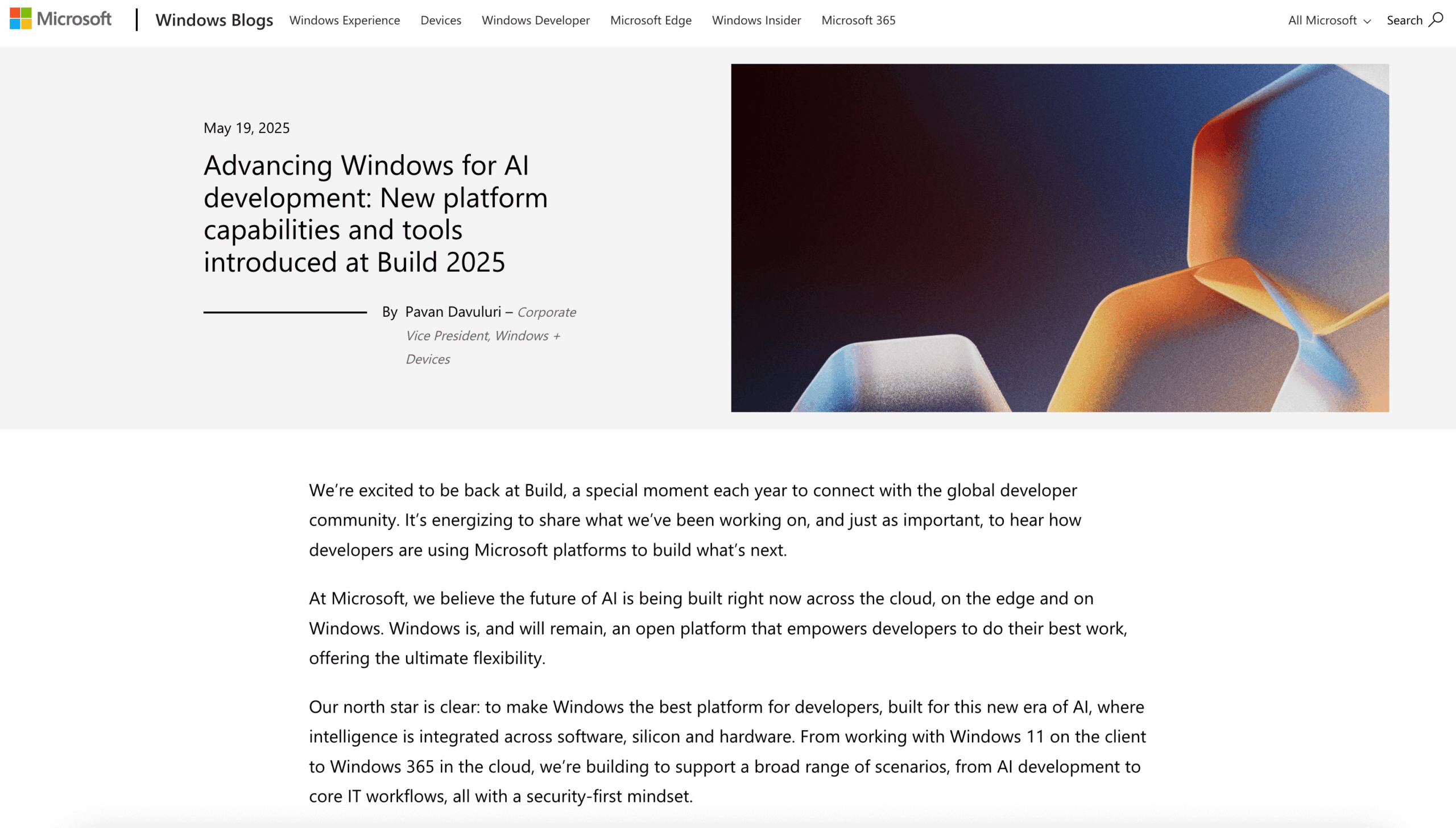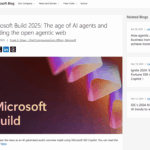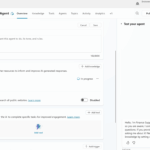Microsoft is transforming Windows into a comprehensive development ecosystem for artificial intelligence with the new AI Foundry platform.
The Build 2025 conference marks a significant turning point in Microsoft’s AI strategy. The company unveiled Windows AI Foundry, an integrated platform that combines local model execution, cloud hybrid workflows and advanced security features. This new infrastructure positions Windows as the leading development environment for AI applications.
Windows AI Foundry was created from the further development of Windows Copilot Runtime and offers developers access to over 1,900 optimized AI models. The platform supports various hardware architectures from AMD, Intel, NVIDIA and Qualcomm and enables automatic optimization for CPUs, GPUs and specialized NPUs. Of particular note is the integration of Phi Silica, Microsoft’s 3.8 billion parameter language model that runs entirely locally on NPU hardware.
The new Windows App SDK 1.7.2 introduces six AI-native APIs that provide hardware-accelerated functions such as text processing, image analysis and real-time object recognition. These APIs achieve 94.7 percent accuracy on COCO datasets at 4K image scaling and reduce inference latency by 2.3 times compared to cloud-based solutions.
Focus on security and compliance
Microsoft integrated VBS Enclaves (Virtualization-Based Security) to create hardware-isolated execution environments for sensitive AI workloads. This technology demonstrated a 99.998 percent detection rate against adversarial attacks in tests while maintaining an inference latency of just 12 milliseconds. The enclaves support post-quantum cryptography and automatic model attestation via TPM 2.0 chips.
Compliance automation is achieved through the automatic generation of model maps documenting training data provenance, bias metrics and carbon footprint. This functionality addresses the requirements of the EU AI Act and reduces PII leakage risks in healthcare NLP applications by 76 percent through differential privacy modules.
Read also: Gemini 3.1 Pro: The new reasoning monster for developers
Enterprise implementation and market impact
Real-world examples demonstrate the power of the new platform. A manufacturing company reduced defect detection latency from 14 seconds (cloud-based) to 89 milliseconds (local NPU) across 12 production lines. This implementation combines ONNX-optimized YOLOv9 models for visual inspection with federated learning across 300 edge devices and reduced cloud costs by $2.4 million annually.
The Microsoft Store ecosystem is undergoing structural changes to support AI app development. The elimination of individual developer fees is expected to save 1.2 million dollars annually for 150,000 developers. New B2B distribution channels with SOC 2-compliant update pipelines and AI-powered app discovery will increase install rates for AI-focused apps by 13 percent.
Executive Summary
- Windows AI Foundry combines local model execution with cloud hybrid workflows for over 1,900 AI models
- Phi Silica enables fully local language processing with 3.8 billion parameters on NPU hardware
- VBS Enclaves provide hardware-isolated security with 99.998% protection against adversarial attacks
- Windows App SDK 1.7.2 provides six new AI APIs for image, text and object processing
- Enterprise deployments demonstrate 2.3x better performance and $2.4 million in cost savings
- Microsoft Store reforms eliminate developer fees and improve AI app distribution by 13%
- Hardware partnerships include 78 NPU designs from AMD, Intel, NVIDIA and Qualcomm for optimized performance
Source: Microsoft







